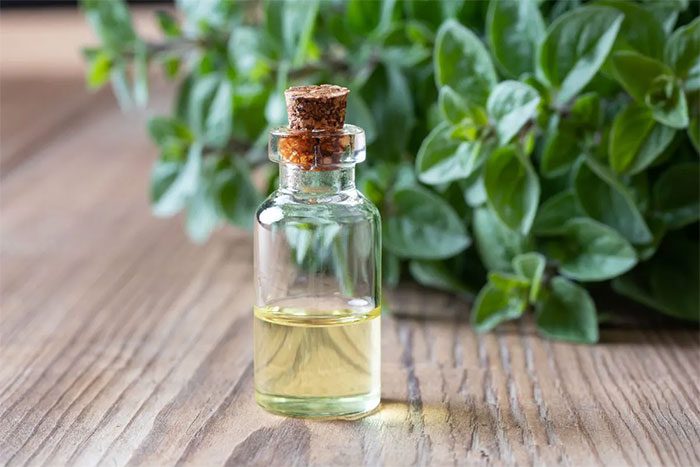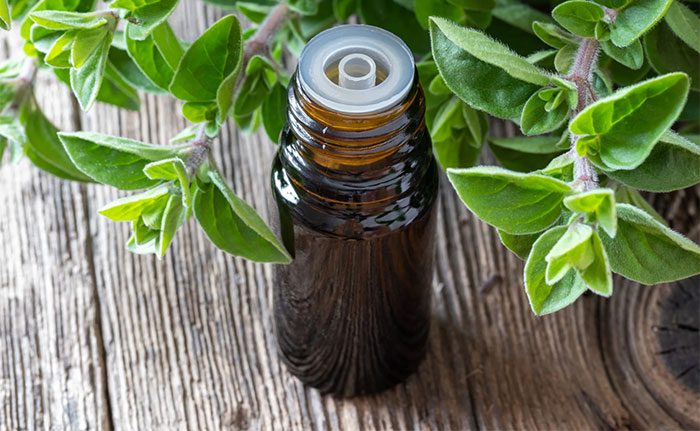Oregano oil, also known as hot oregano oil, has numerous benefits for the body due to its antioxidant, antibacterial, and anti-inflammatory properties in treating infections, improving gut health, and more.
What is Oregano Oil?
Oregano (Origanum Vulgare – hot oregano leaves) is an herb from the mint family, originating from Europe, Asia, and the Mediterranean, used as a spice in cooking. Both oregano oil and oregano essential oil have various health benefits.
Difference Between Oregano Oil and Oregano Essential Oil
Although these two terms are sometimes used interchangeably in certain contexts, oregano oil and oregano essential oil are different extracts.
Oregano Oil
Produced through various extraction methods using solvents like carbon dioxide or alcohol. It is commonly found in supplement form, often as tablets or capsules.
Oregano Essential Oil
This is created by steam distillation of the leaves, stems, or flowers of the plant. Unlike oregano oil, this essential oil is not safe for direct ingestion and must be mixed with carrier oils before application to the skin or use in diffusion.
Health Benefits of Oregano Oil
Here are the health benefits of oregano oil supported by published scientific research, according to Healthline:
1. Rich in Antioxidants
Both fresh and dried oregano leaves have strong antioxidant properties that stabilize free radicals and prevent cellular damage caused by them.
Oregano oil is particularly rich in the antioxidants carvacrol, thymol, and octacosanol, which play a role in most of the herb’s health benefits. According to Healthline, a study in vitro compared the antioxidant content of 39 common herbs and found that oregano leaves had the highest antioxidant concentration.
2. Reduces Inflammation
Both oregano oil and oregano essential oil have been shown to possess anti-inflammatory properties. A study on mice indicated that topical application of oregano extract significantly reduced inflammation caused by Propionibacterium acnes, a bacterium that can cause dermatitis and acne.
Another study published in 2021 in the Molecular Science Journal found that carvacrol in oregano could reduce inflammation and blood cholesterol levels in mice on a high-fat diet.
According to Health, research on human skin cells suggests that oregano essential oil can help combat inflammation, promote wound healing, boost the immune system, and even offer protection against cancer.

Both oregano oil and oregano essential oil have been shown to possess anti-inflammatory properties. (Image: Internet).
However, it is important to note that oregano essential oil may have less positive effects on certain cells; thus, human studies on its anti-inflammatory effects need to be more extensive before making recommendations on usage levels.
3. Antibacterial Properties
Due to its high carvacrol content, oregano oil shows promise in treating bacterial infections when applied topically. A 2021 study published in DOI revealed that oregano oil exhibited significant activity against 11 types of antibiotic-resistant bacteria.
Oregano essential oil may also have effects against certain bacteria, including those associated with food poisoning and cavities. However, it is not safe for oral use due to toxicity, so it should not be ingested unless recommended by a doctor.
4. Improves Respiratory Function
Oregano has long been used in traditional medicine to treat respiratory conditions, including asthma, cough, and bronchitis.
Two randomized controlled trials showed that carvacrol supplementation improved inflammation, lung function, and respiratory symptoms in patients with lung damage and asthma. However, research on carvacrol extracted directly from oregano oil is still limited, so it cannot yet be concluded whether oregano oil has similar effects as this supplement.

Oregano has long been used in traditional medicine to treat respiratory conditions. (Image: Internet)
5. Enhances Digestive Health
Oregano oil has traditionally been used to treat digestive issues such as indigestion, diarrhea, and stomach pain.
Notably, according to Healthline, the compounds carvacrol and thymol may help treat small intestinal bacterial overgrowth (SIBO), a digestive disorder causing stomach pain, bloating, and diarrhea due to excessive bacteria in the small intestine.
6. Fights Fungal Infections
According to Health, a 2022 in vitro study demonstrated that oregano essential oil was effective against common yeast infections caused by the Candida fungus due to its thymol content.
Candida can cause various infections, including oral thrush, nail fungal infections, and genital, bloodstream, and organ infections. Additionally, excessive growth of Candida can exacerbate inflammatory bowel diseases such as Crohn’s disease and ulcerative colitis.
However, the antifungal agents in the experiments included several other compounds, making it difficult to determine whether oregano oil alone would yield similar results.

Hot oregano leaves can easily be extracted at home. (Image: Internet).
Other Notable Potential Benefits
Wound Healing
Applying diluted oregano oil to the skin can help protect minor cuts and scrapes until they heal, thanks to the antibacterial properties of thymol and carvacrol.
Insect Repellent
According to Medical News Today, both carvacrol and thymol can serve as effective insect repellents against ticks and mosquitoes. However, you should not apply oregano essential oil directly to the skin and must dilute it to avoid toxicity.
Cancer Prevention
According to Healthline, several in vitro studies suggest that carvacrol has promising effects related to preventing lung, liver, and breast cancer by inhibiting the growth and even killing cancer cells.
Weight Loss
Due to the carvacrol content in oregano, oregano oil is being considered for weight loss support and obesity treatment, but more in-depth studies on humans are needed before making definitive dosage claims.
Side Effects
Over-the-counter (OTC) oregano oil extracts are generally recognized as safe (GRAS) but may cause allergic reactions in sensitive individuals. If you are allergic to any plants in the Lamiaceae family, such as basil, mint, and sage, you should avoid using oregano.
Additionally, oregano should not be supplemented if you are pregnant or breastfeeding; children should avoid using oregano oil unless recommended by a doctor.
Excessive use of oregano supplements may also increase the risk of bleeding, and currently, there is not enough research determining the safety of oregano essential oil when applied to the skin or ingested directly, so caution is advised with concentrations greater than 1%.
Although oregano oil is generally well tolerated, large amounts in the diet can also cause stomach pain, heartburn, diarrhea, constipation, vomiting, headaches, and dizziness.
Oregano oil may also interact with prescription medications and supplements, including blood thinners, diabetes medications, copper-iron-zinc supplements, herbs that slow blood clotting (such as garlic, ginger, and ginkgo), and herbs that may lower blood sugar (like bitter melon and aloe vera).
Overall, both oregano oil and oregano essential oil offer health benefits. However, before using any supplement, you should consult with a doctor for appropriate advice.


















































